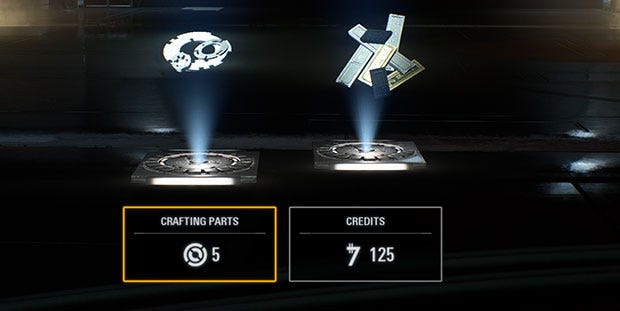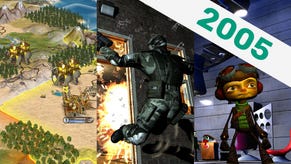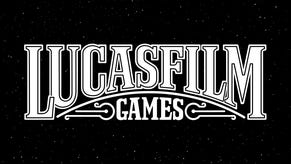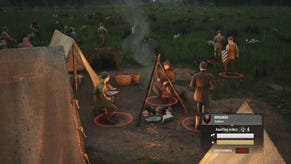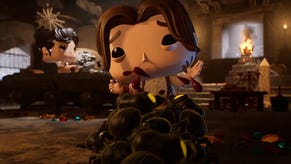Belgium commission declares loot boxes are gambling
What is a gamble
Following the Star Wars Battlefront 2 microtransaction debacle, last week the Belgium Gaming Commission launched an investigation into whether loot boxes came under their purview. VTM news (beware of the sloppy Google translation) have now reported on their conclusion, which is a resounding 'yes'.
Elsewhere in the world, Hawaiian politicians have spoken out, calling for legislation to end the sale of loot boxes to minors. So, will we be seeing greater restrictions on what games companies are allowed to sell any time soon? It's complicated, but probably not.
First, let's jump back to Belgium. The gaming commission has declared that "the mixing of money and addiction is gambling". It's odd that it doesn't stipulate the role that chance has to play, though that can be explained by the way they're talking directly about loot boxes. Belgium's Minister of Justice Koen Geens added that "mixing gambling and gaming, especially at a young age, is dangerous for the mental health of the child."
They're emphatic statements, and Geens' ultimate goal is to ban in-game purchases in all circumstances where the buyer doesn't know exactly what they will get. He's aware that such radical changes to legislation won't happen any time soon, however: "It will require time, because we need to go to Europe with this. We will absolutely try to forbid it."
It's early days, and UK digital entertainment lawyer Jas Purewal is sceptical about the ultimate significance of the Belgium Gaming Commissions findings. He points out that Belgium still has "no considered policy position, no stated strategy" and that "gambling authorities move slowly on the whole".
He summarises: "TLDR - don't read much into Belgium news yet. Even if somehow it happens, I don't think it would actually change very much at all. Only if this becomes a concerted international movement against video games gambling would things change. The chances of that happening seems very low." (Thanks, Eurogamer).
The chances of an international movement forming against gambling in games may be low, but it doesn't seem impossible. Recent comments from Hawaii State Representative Chris Lee, denounced Battlefront 2's practices as "predatory". Here are the highlights from the press conference he gave on Monday November 21st.
His statements focus on the impact that gambling can have on minors.
"This game is a Star Wars-themed online casino designed to lure kids into spending money; it's a trap. This is something we need to address to ensure that particularly kids who are underage, who are not psychologically and emotionally mature enough to be able to gamble - which is why gambling is prohibited under 21 - are protected from being trapped into these cycles which have compelled many folks to spend thousands of dollars in gaming fees online.
We're looking at legislation this coming year which could prohibit the sale of these games to folks who are underage in order to protect families, as well as prohibiting different kinds of mechanisms in those games. We've been talking with several other states as well - legislators there who are looking at the same thing. This is the appropriate time to make sure these issues are addressed before this becomes the new norm for every game."
Agreement over whether loot boxes constitute gambling is far from unanimous. In response to questions from a Cambridge MP about loot boxes and gambling laws, the UK Gambling Commission pointed to a paper from March this year that lays out the governments stance on gambling within games.
Those responses don't directly address the actual selling of loot boxes by developers, though in response to a petition the UK Government clarified that in instances "where prizes are restricted for use solely within the game, such in-game features would not be licensable gambling". That ties in to how UK law stipulates that gambling requires the possibility of spending money and gaining nothing, as Eurogamer found in their excellent investigation into the matter. The same stance is held by the relevant agencies in the US and Canada.
Personally, I'd argue that the possibility of either receiving something you want or don't want from a loot crate makes the decision to buy one a gamble, and I can't see how the psychological mechanisms at play would be significantly different if there was also a chance of receiving nothing. It sounds like the Belgians agree with me, but the future of loot boxes in games is still uncertain.
